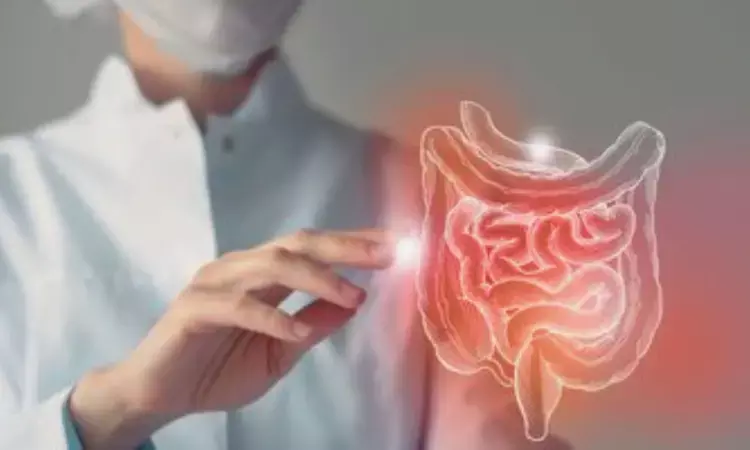- Home
- Medical news & Guidelines
- Anesthesiology
- Cardiology and CTVS
- Critical Care
- Dentistry
- Dermatology
- Diabetes and Endocrinology
- ENT
- Gastroenterology
- Medicine
- Nephrology
- Neurology
- Obstretics-Gynaecology
- Oncology
- Ophthalmology
- Orthopaedics
- Pediatrics-Neonatology
- Psychiatry
- Pulmonology
- Radiology
- Surgery
- Urology
- Laboratory Medicine
- Diet
- Nursing
- Paramedical
- Physiotherapy
- Health news
- Fact Check
- Bone Health Fact Check
- Brain Health Fact Check
- Cancer Related Fact Check
- Child Care Fact Check
- Dental and oral health fact check
- Diabetes and metabolic health fact check
- Diet and Nutrition Fact Check
- Eye and ENT Care Fact Check
- Fitness fact check
- Gut health fact check
- Heart health fact check
- Kidney health fact check
- Medical education fact check
- Men's health fact check
- Respiratory fact check
- Skin and hair care fact check
- Vaccine and Immunization fact check
- Women's health fact check
- AYUSH
- State News
- Andaman and Nicobar Islands
- Andhra Pradesh
- Arunachal Pradesh
- Assam
- Bihar
- Chandigarh
- Chattisgarh
- Dadra and Nagar Haveli
- Daman and Diu
- Delhi
- Goa
- Gujarat
- Haryana
- Himachal Pradesh
- Jammu & Kashmir
- Jharkhand
- Karnataka
- Kerala
- Ladakh
- Lakshadweep
- Madhya Pradesh
- Maharashtra
- Manipur
- Meghalaya
- Mizoram
- Nagaland
- Odisha
- Puducherry
- Punjab
- Rajasthan
- Sikkim
- Tamil Nadu
- Telangana
- Tripura
- Uttar Pradesh
- Uttrakhand
- West Bengal
- Medical Education
- Industry
Early Colorectal Cancer Screening may Reduce Cancer-Specific Mortality: JAMA

A recent study published in the Journal of American Medical Association revealed that early invitation to Colorectal cancer (CRC) screening could significantly reduce the cancer-specific mortality when compared to late or no invitation. This research spanning from January 2008 to December 2021 to evaluate the impact of routine CRC screening using fecal occult blood testing on cancer-specific mortality.
This study was conducted in the Stockholm-Gotland region of Sweden encompassed a total of 379,448 individuals born from 1938 to 1954 and analyzed data from December 2022 to June 2023.
The participants were categorized into groups based on their invitation to screening as early (2008-2012), late (2013-2015) or no invitation. The early invitation group which constituted 203,670 individuals was compared to the control group of 175,778 individuals who received late or no invitation.
The results demonstrated a significant decrease in CRC mortality among those who underwent early screening. The individuals in the early screening group expressed a reduced risk of CRC mortality by 14% when compared to the control group. Also, the study found a corresponding decrease in excess mortality which further emphasizes the positive impact of early CRC screening.
Despite challenges in evaluating the effectiveness of population-based CRC screening programs, this study provides compelling evidence that supports their efficacy in reducing cancer-specific mortality rates. The mean screening participation rate was 63.3% which indicates a significant uptake of screening within the studied population.
The outcomes underscore the importance of routine CRC screening with fecal occult blood testing as a crucial preventive measure against colorectal cancer. This suggest that the true association between screening and reduced mortality could be even higher, considering potential factors such as testing coexistence in the control group and delayed CRC diagnoses.
Reference:
Blom, J., Saraste, D., Törnberg, S., & Jonsson, H. (2024). Routine Fecal Occult Blood Screening and Colorectal Cancer Mortality in Sweden. In JAMA Network Open (Vol. 7, Issue 2, p. e240516). American Medical Association (AMA). https://doi.org/10.1001/jamanetworkopen.2024.0516
Neuroscience Masters graduate
Jacinthlyn Sylvia, a Neuroscience Master's graduate from Chennai has worked extensively in deciphering the neurobiology of cognition and motor control in aging. She also has spread-out exposure to Neurosurgery from her Bachelor’s. She is currently involved in active Neuro-Oncology research. She is an upcoming neuroscientist with a fiery passion for writing. Her news cover at Medical Dialogues feature recent discoveries and updates from the healthcare and biomedical research fields. She can be reached at editorial@medicaldialogues.in
Dr Kamal Kant Kohli-MBBS, DTCD- a chest specialist with more than 30 years of practice and a flair for writing clinical articles, Dr Kamal Kant Kohli joined Medical Dialogues as a Chief Editor of Medical News. Besides writing articles, as an editor, he proofreads and verifies all the medical content published on Medical Dialogues including those coming from journals, studies,medical conferences,guidelines etc. Email: drkohli@medicaldialogues.in. Contact no. 011-43720751


